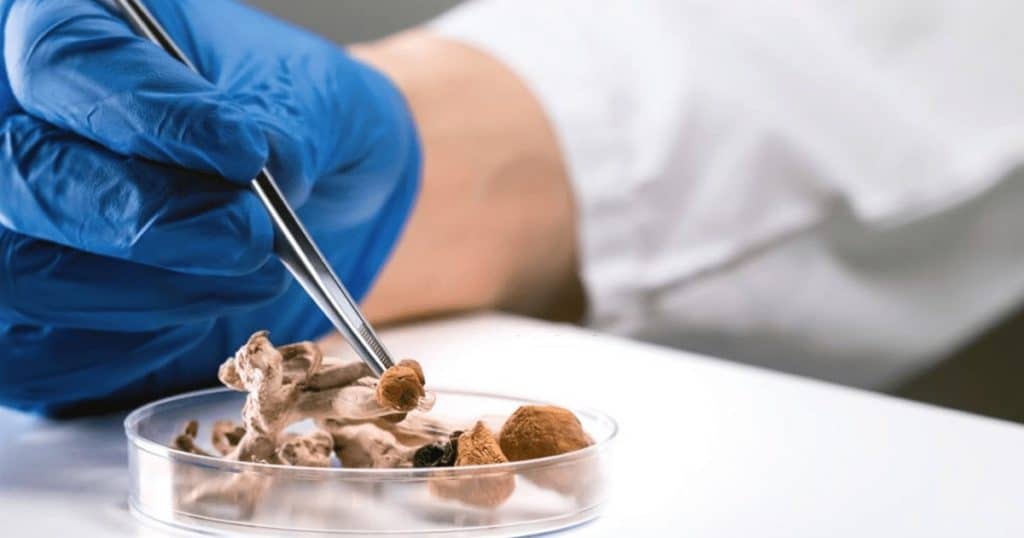It’s becoming fairly commonplace for Maryland’s Governor to approve small amendments to drug legislation without changing the broad-ranging legality of drug usage for the general population. One thing’s for certain: psychedelics for PTSD is one area that will benefit from these latest reforms.
In the latest amendment, the governor is effectively making the use of psychedelics legal in specific circumstances, namely for veterans, and only under the auspices of a fund designated for studying the drugs’ effects on war veterans with PTSD.
Because the psychedelics for PTSD will be provided cost-free to any veteran who successfully applies to the program, this removes the need for the state to wrangle with existing legislation on drug sales. It is also a way for the Governor to look busy in addressing calls for the full-scale legalization of psychedelics without making any substantial commitments that could land him in hot water with certain segments of the public.
The fund which won’t be overseen by him, and won’t require his signature, specifically provides for use of MDMA, ketamine and psilocybin for the treatment of war-related PTSD. One positive outcome in this arguably dismal showing by Maryland is the potential future use of legalized high-quality psychedelics for PTSD.
We would argue that in a self-regulating legal market, quality controls by the government won’t be necessary, because they’ll be baked into the supply-demand process. Quality psychedelics for PTSD tend to float to the top, but in the legal context being created by Maryland, the government will be setting the quality standards manually.
In case you were wondering, the measures weren’t authored by Gov. Larry Hogan either, but reached his desk after being passed along by the state’s lower and upper legal chambers. Rather than outright approval or denial of the bill, he simply “allowed” it to go ahead under the guidance of what’s been named the Post-Traumatic Stress Disorder and Traumatic Brain Injury Alternative Therapies Fund set aside for targeted research. Quite a mouthful isn’t it?
Although this might be considered weak sauce on the part of Gov. Hogan, it does open up an avenue for future legalization of adult usage. We’re also pleased that it brings to bear the use of psychedelics for PTSD. This is not a particularly promising start for the general legalization of psychedelics, but it is a start nonetheless.
We’re hopeful that this opens the doorway for broader legalization of psychedelics, although it must be said that more momentum in this direction would have resulted from an outright signing by the governor himself.
The amendment forms part of a more general list of policies related to other areas. In a way, this is commendable since public backlash from elements of the public who don’t like psychedelics, even psychedelics for PTSD is likely to be muted.
Bill Guidelines
Only eligible veterans will be allowed to apply for the program and its purpose is limited to investigating the effectiveness of psychedelics in treating post-traumatic stress in veterans. So this is not a free-for-all drug fiesta, not by a long shot.
The key players in this program include the University of Maryland, John Hopkins University, the Walter Reed National Military Medical Center and Sheppard Pratt Hospital.
Two state departments are tasked with overseeing this project, with the Department of Health, which is in charge of paying for the program and making “periodic” visits to the Department of Veteran Affairs to collect findings on the project’s level of success.
Reforms For Psychedelics In Other States
A sizable number of other States have also made progress in the realm of adult use of psychedelics for PTSD, but in some cases calls allowing for recreational usage is also seeing a resurgence. These reforms vary in broadness and are further along in the process in some aspects when compared to Maryland or further behind to varying degrees in others.
Recommendations for medical trials on a broad range of psychedelics for PTSD are being mulled over in three states to date: Maine, Georgia and Utah. All three states are behind Maryland and are still in their recommendation phases, with Maine’s house of representatives refusing to advance the bill. Utah is the most proactive of these three, having set up a task force to inquire into therapeutic use for the general population.
Meanwhile, a House committee in Missouri is exploring a GOP-initiated bill to make drug use at designated care facilities legal, with proposals that low-level possession be completely legalized.
Hawaii has made the necessary approval for a bill that will allow a controlled group study of the therapeutic effects of psychedelic mushrooms in selected individuals over 21 years of age.
Doctors in Rhode Island might be able to prescribe psilocybin from psychedelic mushrooms to their patients if two of its bills from March are approved before the deadline.
Virginia is facing considerable headwinds and will be holding off approval for a bill to legalize a broad range of psychedelics until 2023. A proposal by the senate for the specific legalization of psilocybin was defeated earlier this year during a committee meeting.
Penn State, which seemed to have a strong chance of approval for a bill for the therapeutic use of psilocybin for mental health patients might find its efforts on the rocks after it was reported by a sponsor that the relevant committee is not inclined to approve the movement.
Texas, meanwhile, is in a similar position to that of Maryland as it moves ahead with psychedelic trials of ketamine and MDMA for therapeutic use in veterans.
On the higher congressional level, bipartisan members of Congress sent a letter to the DEA in January imploring them to legalize psilocybin use for terminally ill patients.
While none of these reforms are very committal in terms of broader reform on psychedelic usage, we are encouraged by the movement towards open-minded and fair testing of psychedelics, which, given the correct quality standards, will ultimately be very beneficial to patients.
Enjoyed that first hit? Come chill with us every week at the Friday Sesh for a freshly packed bowl of the week’s best cannabis news!
















